Why you’ll love Moshimo
When it comes to sushi in Brighton there is only one real option for many of the city’s residents. Moshimo is the premier sushi and Japanese restaurant, and one of the city’s most popular eating destinations located in the Brighton Lanes.
It’s multi award winning, ethical, sustainable, inventive and frankly delicious. Great for dates, family gatherings, quick tasty lunches or decadent dinners. Everyone is welcome here.
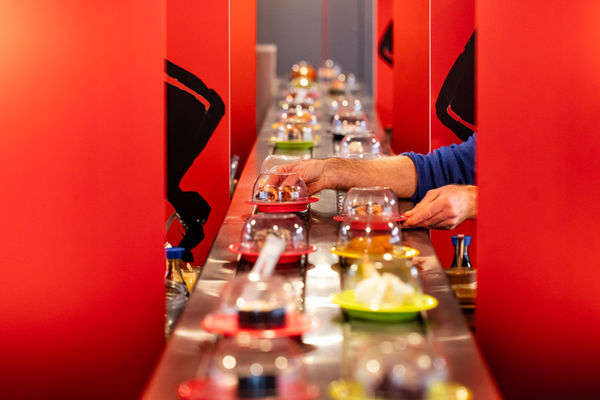
From the eye-catching architecture and interiors to the sensational sushi dishes, eating at Moshimo is an immersive experience that offers an authentic taste of traditional Japanese cuisine with a modern twist. Underpinning everything is an ethos of serving only the freshest fish and seasonal ingredients available, prepared on site with skill, and a passion for creating elegant dishes that are bold in their simplicity.
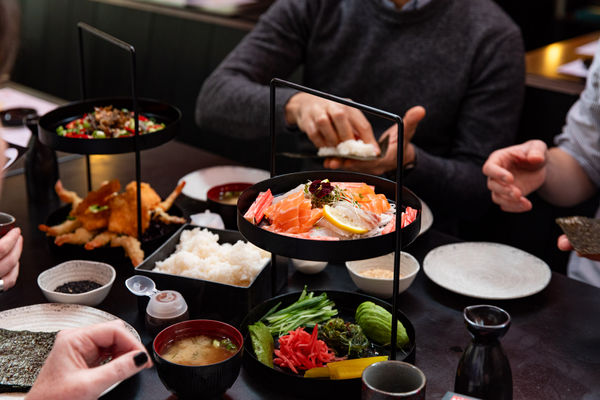
You can be served up amazing dishes from the kitchen and sushi station, or if you prefer to be more hands on then they have you covered. You can simply choose your own dishes from the revolving sushi belt or if you want to get more stuck in look for the regular sushi masterclasses or cookery classes. An everyday option is gathering your best people and booking a Temaki Party, which is basically like an Afternoon Tea but with platters of sushi instead of cakes! You’ll get as much guidance as you want or need from the friendly staff and there’s no judgement on what great shapes you make, whatever it looks like it will taste great!
Sustainable Champions | Moshimo Brighton
When it comes to sustainability there are few restaurants that can claim to have had such a global effect than Moshimo. Ticking all the usual boxes was not enough for the team, and through their “Fish Love” campaign they have highlighted the dangers of over fishing at a European level. Started in 2009, the campaign has regularly hit the headlines through its revealing images of celebrities holding fish and seafood. Big stars such as Helena Bonham-Carter, Ben Kingsley, Gillian Anderson and Dame Judi Dench have been featured, all to raise awareness of destructive fishing practises. If you haven’t seen the images go to fishlove.co.uk.

They are champions of sustainability on the Brighton scene too, not just the worldwide stage. Their ever evolving efforts to reduce waste are great for the city, making it a great place to work and eat.
Style and Substance
The award winning Opticon building that houses Moshimo Brighton was designed to resemble a floating lantern. With sliding walls that resemble Japanese shoji paper walls that bring the outside in during the summer months. The Hiroba deck area outside is a gorgeous spot on those sunny days, stylish and comfortable with space for big groups or corners for more intimate catch ups. Being in the heart of The Lanes you can absorb the atmosphere, listen to the cheers from the Weddings that frequent the neighbouring Town Hall, all whilst eating fabulous and fresh Japanese cuisine.

Great Offers at Moshimo Brighton
Moshimo is a firm fixture in Brighton with many loyal fans who visit the restaurant on a regular basis. This loyalty is rewarded through the Moshimo Membership scheme. An annual membership costs just £24 and for that you will be entitled to 50% off your bill on Monday and Tuesday and for Vegan Sushi on Wednesday.Your membership goes to support the Fish Love campaign. It is no surprise that Moshimo has been taken into the hearts of residents and visitors alike, why not try for yourself and fall in love with this Brighton favourite.

Please note the hot kitchen may close 30 minutes before closing if you’re arriving late please phone Moshimo Brighton ahead of your arrival to check!
Reviews
Post a Review
Getting There
Opening Hours
Monday 12:00pm – 10:00pm
Tuesday 12:00pm – 10:00pm
Wednesday 12:00pm – 10:00pm
Thursday 12:00pm – 10:00pm
Friday 12:00pm – 10:30pm
Saturday 12:00pm – 10:30pm
Sunday 12:00pm – 9:00pm
Deals and offers at Moshimo Brighton, Japanese & Sushi
Private hire
Brighton’s first Japanese conveyor belt style restaurant with an excellent reputation for its fresh and sustainable food. It’s located in the historic Lanes area with fantastic outdoor dining: the deck, called the Hiroba, emulates sitting on tatami mats and can be hired out for private parties, wedding receptions, and as a stage for performances and product launches.
Food offers - 50% off Sushi and More
BENTO LUNCH BOX £12
Introducing our new £12 bento lunch boxes for customers who want something fast, tasty and filling.
Available Mon-Friday, 12-5pm
Items can include options like the salmon katsu box, vegan katsu box, chicken katsu and takoyaki box.
Each comes with gyozas, kimchi, miso soup, and rice.
Members will enjoy complimentary wine.
*lunch menu doesn’t include any discounts
*not for takeaway
50% OFF SUSHI
For £24 a year enjoy a 50% discount on our food menu every Monday and Tuesday, and on the plant-based menu every Wednesday.
Plus, kick off the year with some great savings – Moshimo Members get a 50% discount on our food menu from Monday to Friday throughout January and February. Each card is good for you and a friend, so grab your bestie and get ready to feast!
Food offers - Unlimited Gyoza
Unlimited Gyoza
Limitless joy from MOSHIMO: fill your belly to your heart’s content with unlimited gyoza – and have a complimentary pint of Asahi* on us while you’re at it. You’ll also be offered a range of sauces and rice. Every Thursday and Sunday for just £25 per person.
Food offers - Free Membership for your Friend 50% off Sushi & More
Come to Moshimo with your friends and family between now and the 25th February 2025 with your Moshimo Membership card in hand,
Ask a member of our team to sign your guest up to become a MOSHIMO Member for free and they get ALL these great rewards!

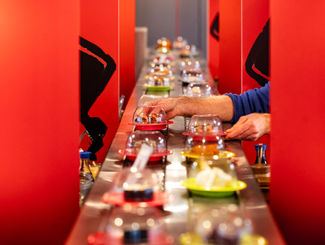
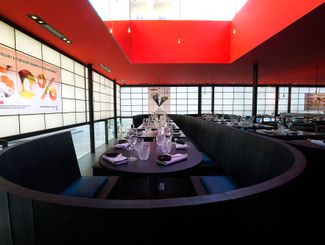
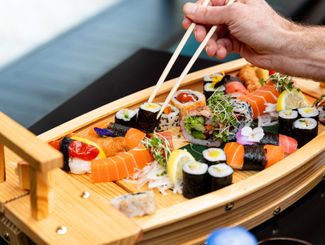
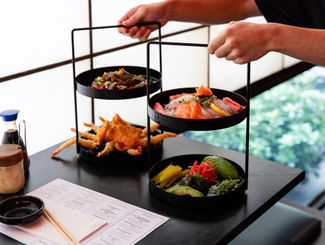
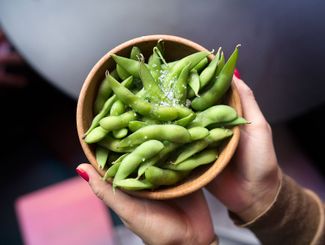
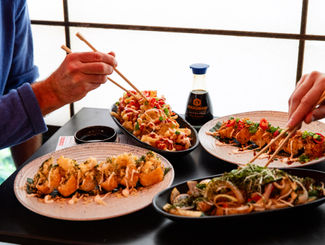
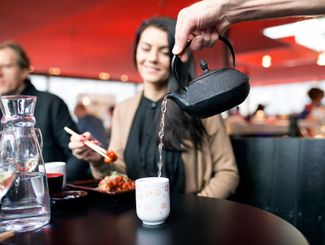
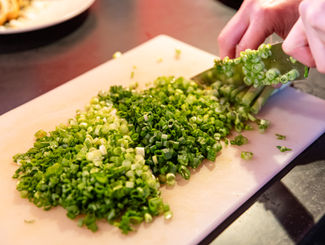
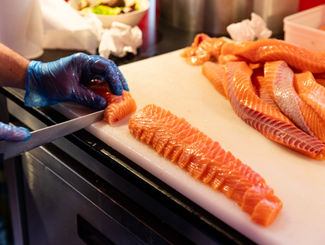
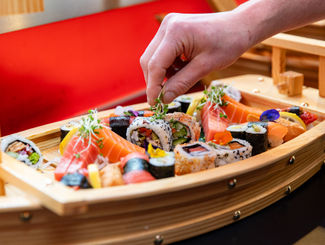
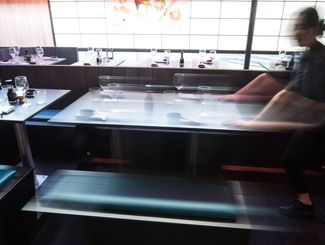
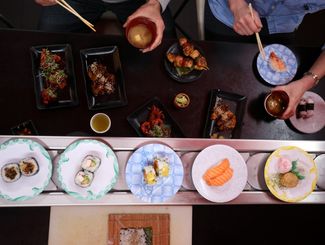
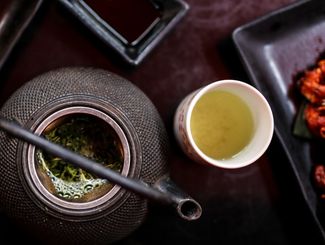
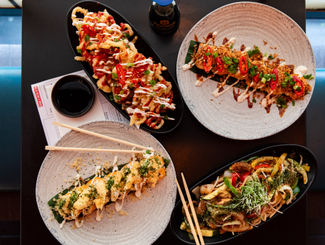

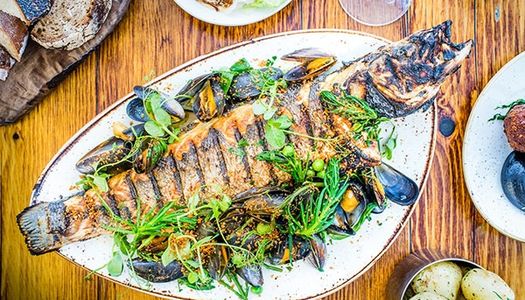

Moshimo is my favourite restaurant in Brighton, you can sit casually by the conveyor and help yourself, or choose to have table service. Great offers if you get their membership card. Its just great food and lovely staff in a cool venue! If you don’t know what to order they have a couple of taster menus which I’d recommend. They also have a pretty decent vegan range so it’s not just fish!
Moshimo (previously Moshi Moshi) has been around for many years and it’s easy to see why. The service and food are reliable, good quality and they are committed to sustainability. They also cater for vegans. The membership is well worth it to secure excellent discounts. I would note that the Chicken Kang Jung and the Squid Kara-age are very similar and both very generous portions…so maybe don’t order both of them just for yourself like I did!
I will be eating at Moshimo for years to come.
Had a lovely meal here last summer and can’t wait to get back again soon for more sushi and cocktails! Staff are very friendly and welcoming and a great atmosphere, highly recommend.
My kids love Moshimo especially every Monday and Tuesday when you get 50% off your bill when you sign up for a membership card. It’s a great treat for the kids after swimming on a Monday afternoon, we can normally park close, eat and get back to the car park within the hour!
Great selection of Sushi and the miso soup just hits the spot for me.
I have loved Moshimo for a long time. They just seem to get every dish perfect and on a sunny day the outside tables are perfect for a lazy lunch. This is my go to alternative to a sunday roast!
The best place in town for sushi and there’s a fantastic vegan range to choose. On a sunny day their decking is the perfect spot to enjoy your food!
❤️ sitting outside in the summer at Moshimo! They do a mean cocktail as well as sushi. Love the miso aubergine!
Best sushi in town